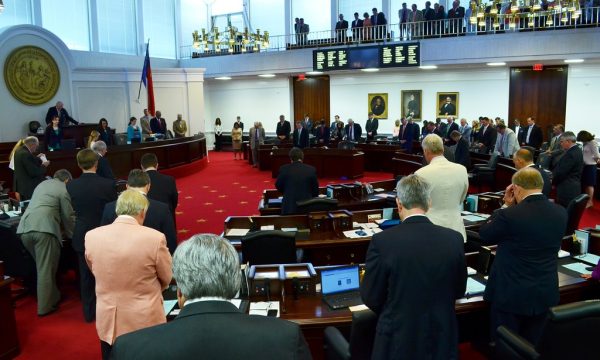The world of American short stories speaks volumes
Does your current novel feel indigestible, or too time-consuming? Try our vegetarian option: short stories!
“Fahrenheit 451” by Ray Bradbury rests in front of me, my bookmark on page fourteen. “Angels and Demons” by Dan Brown — I managed to read about halfway through. “The Invention of Wings” by Sue Monk Kidd I haven’t even started. Frankly, novels sometimes feel indefinite and burdensome as I bear through pages of hefty detail or figurative language. In any case, my schedule doesn’t allow much for daily reading. I often find myself reaching for a more condensed version of novels: short stories. Stephen King—in a short story collection entitled “Everything’s Eventual”—appropriately compares them to “one-of-a-kind items you can buy in an artisan’s shop.” Each work is a little glimpse into the writer’s life, imagination or era.
So, Constant Reader (a whimsical trademark that King uses to acknowledge his readers), today I’ll share with you two American short stories that are truly worth the read. From the first of them ever published, by Francis Hopkinson, to the contemporary tales of King, one can find an appreciation for how short stories have contributed to various stages of American life. That is, collectively, in just a matter of 24 pages.
Compiled in Martha Foley’s “200 Years of Great American Short Stories” is “A Pretty Story” by Francis Hopkinson, a signer of the Declaration of Independence and designer of the American flag. Dating back to the beginning of America itself, Hopkinson published the allegory in 1774 — a year before the American Revolution came into full swing. Foley describes it as “a rallying cry to the colonists to revolt against the British.”
Over the course of 12 pages, Hopkinson recaps the events leading up to the Revolution. Not-so-subtly, he replaces the identities of major figures and entities with fictional characters. Namely, the ‘Nobleman’ represents King George III, and his ‘children’ are the American colonists (denoted by Foley in a note before the story). Following several inflictions imposed upon the colonists by their ‘mother,’ or the British Parliament, was the notorious Boston Tea Party. Brave colonist Jack (Massachusetts) stuck it to the man: “[Jack], I say, being almost driven to despair, fell to work, and with great zeal stove to pieces the casks of gruel [tea], which had been sent him, and utterly demolished the whole cargo.”
Hopkinson leaves the reader with an ambiguous, dramatic ending. Jack’s ‘overseer,’ General Gage, had banned the colonists’ hushed meetings about detaching from Great Britain. Hopkinson writes: “These harsh and unconstitutional proceedings irritated Jack and the other inhabitants of the new Farm [America] to such a degree that-”
When I imagine an American colonist reading Hopkinson’s abandoned train of thought, I wonder if it was meant to be a call to action. As if to say, “how the story ends depends on your resilience and efforts toward change.” At any rate, his piece—and the events that ensued—embody the ability of literature to tap into the human spirit, and stir the pot of patriotism, in this instance. Centuries later, the effects of Hopkinson’s words are still felt.
Now, in the 21st century, Stephen King is one of the most influential authors for readers across the nation. “The Bazaar of Bad Dreams” collection harbors one remarkable, spine-chilling short story: “The Dune.” In its preface, King calls the story “one of [his] very favorite endings.” I encourage my readers to experience it for themselves, so I’ll refrain from spoilers in the upcoming paragraph.
When I imagine an American colonist reading Hopkinson’s abandoned train of thought, I wonder if it was meant to be a call to action. As if to say, “how the story ends depends on your resilience and efforts toward change.”
The storyline begins with Judge Harvey Beecher stumbling into his canoe and setting off toward an unassuming sand dune on the far side of the island. The 90-year-old judge has been paying visits to the dune since he was ten years old. Every so often, he encounters a harrowing message: names of individuals, who would pass away in less than a month, inscribed in the sand. Beecher discusses with his lawyer plans for finalizing the former’s will; then, he trails off into the backstory of his beloved dune. To be continued by this Constant Reader.
To me, “The Dune” and others of its kind epitomize modern short story writing. King’s wild, unique ideas and storytelling talents meld together to produce the vivid narratives we’ve all come to love. Whether it be a campfire-worthy thriller — “The Dune” — or a science and historical fiction hybrid (“The Little Sisters of Eluria,” another great one), his and other brilliant authors’ short stories exemplify the ingenious minds of today. They’ll also, hopefully, spark the glorious minds of tomorrow. Though King’s style is vastly different than that of Hopkinson, both writers have worked to inspire the readers of their time. From each one’s audience, a new generation of authors emerge.













